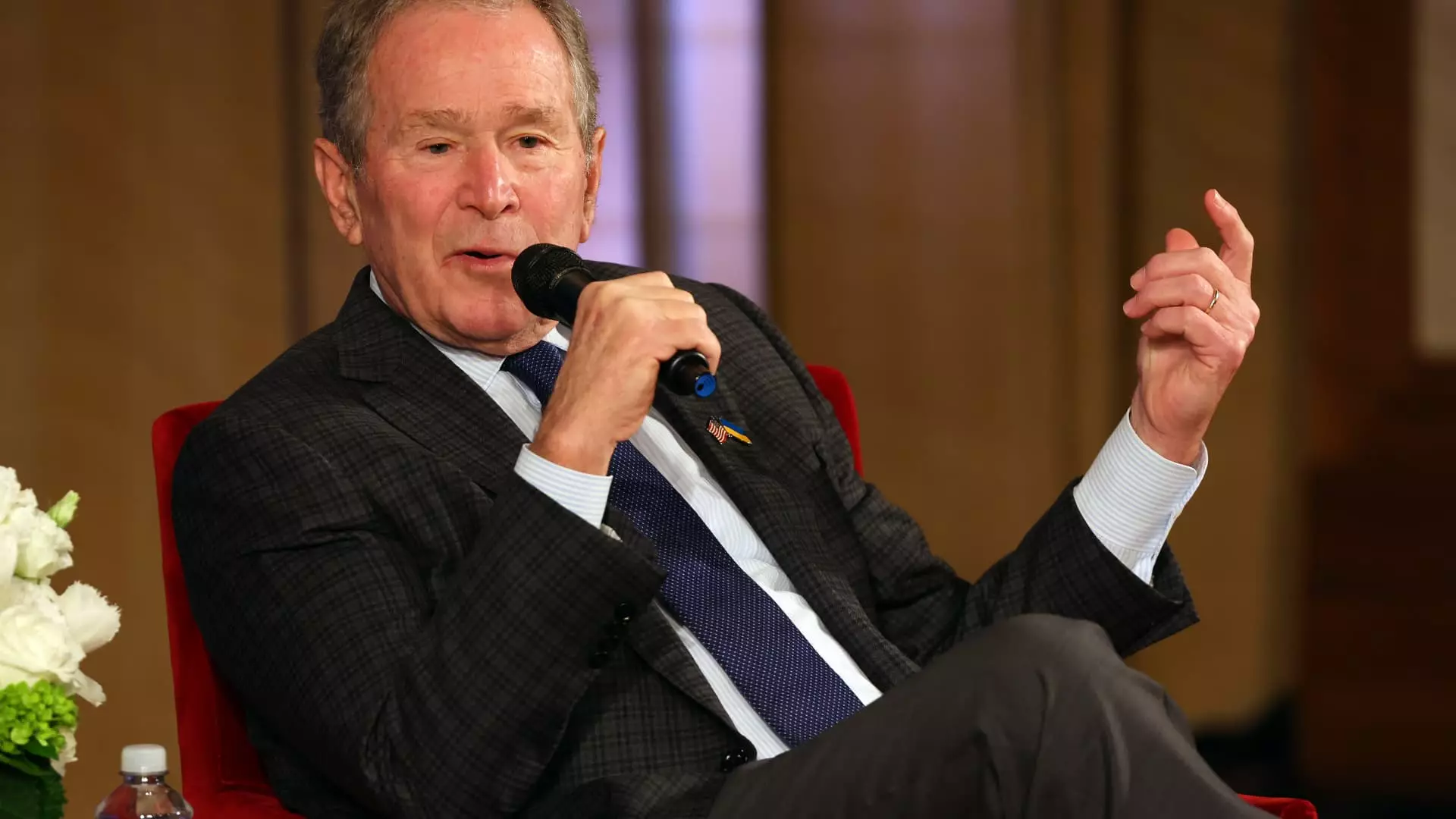The news that former President George W. Bush will not be endorsing a candidate for president in the upcoming election has raised many eyebrows. His office declared that he has retired from presidential politics and will not be publicly endorsing any candidate in this election. This decision has left many wondering about the motivations behind Bush’s refusal to engage in the endorsement process.
Former Vice President Dick Cheney’s announcement that he would be backing Vice President Kamala Harris in the presidential race has added an interesting twist to the story. Cheney’s scathing criticism of Donald Trump as a threat to the republic has resonated with many Republicans. His daughter, Liz Cheney, also pledged her support for Harris, further deepening the divide within the GOP.
George W. Bush’s decision not to endorse a candidate is a departure from his past behavior. In previous elections, he had publicly supported Republican candidates such as Mitt Romney and John McCain. However, in 2016, both Bush presidents chose to remain silent on Trump’s candidacy. This trend of maintaining neutrality seems to have continued in the 2020 election, with George W. Bush voting for Condoleezza Rice as a writing candidate.
The fact that several prominent moderate Republicans and former Trump administration officials have chosen to endorse Harris over the Republican candidate is indicative of the growing divide within the party. These endorsements, including those from former Gov. Bill Weld and ex-press secretary Stephanie Grisham, highlight the increasing polarization within the GOP.
The Legacy of Bush
George W. Bush’s decision not to endorse a candidate speaks volumes about the current state of the Republican Party. His silence is a stark reminder of the divisions within the GOP and the challenges that lie ahead for the party. As the election season progresses, it will be interesting to see how Bush’s stance (or lack thereof) influences the political landscape and the future of the party.
George W. Bush’s decision not to endorse a candidate for president is a significant development in the current political climate. His refusal to engage in the endorsement process reflects the deep divisions within the Republican Party and the challenges it faces in the upcoming election. As the election draws near, the impact of Bush’s neutrality on the race remains to be seen.



Leave a Reply